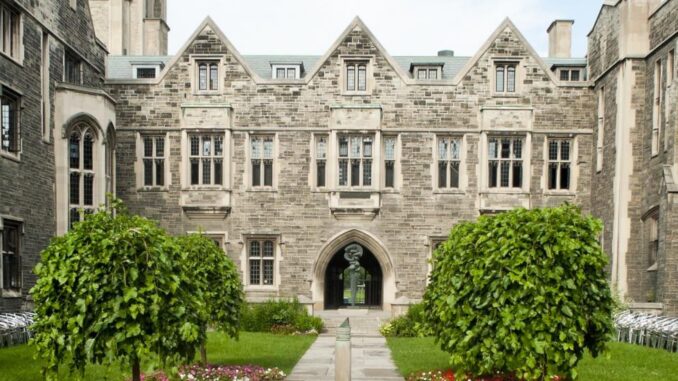
Amber Mitchell is a fourth-year university student majoring in Urban Planning. She currently attends the University of Toronto-Scarborough location. Kelly Leke is also a fourth-year university student majoring in Drama Studies at York University-Glendon campus. Over the course of four years, both students have accumulated a lot of student debt. They believed, along with many other students that the year 2020 would be different in cost.
Now another year has passed, and tuition costs are not seeing a decline for many post-secondary students. In Ontario, according to Statista, in the years of 2018-2019, there were 889,269 students enrolled in post-secondary studies. The past year has been very difficult for many students. A shift from in-person learning to a fully online course load has taken a toll.

Many students are upset about the tuition costs not being reduced for a fully online course load. In fact, Statistics Canada records that there was an increase in tuition costs for the year 2020-2021. For domestic undergraduate students, this meant that there was a 1.7% increase over the year, but for international students, they saw a 7% for the year.
These percentages may seem small but could be a difference in thousands of dollars. “Over three-quarters of returning students were very or extremely concerned about their finances,” says Statistics Canada. Due to the pandemic, many students have lost their job and if they live far away from home, this now became a life-or-death situation.
Last year, 81.64 billion dollars were paid out through CERB states the Government of Canada, and students still struggled to stay afloat.
“Education is a privilege, but it should be an accessible privilege.” – Kelly Leke
Kelly Leke expressed her feelings about the tuition costs. “They say they care about everyone’s well-being, well not adjusting the tuition amount is not caring about your student’s well-being,” says Kelly, and this can be reflected in the rise of mental health issues in school.
In light of this situation, More Feet on the Ground reported that 46% of post-secondary students were feeling depressed in the previous year that it was hard to function.
Kelly Leke is studying to be a teacher and can fully understand the stress that they are under. She says, “I understand that it is hard and it’s a new ball game, but what do they benefit from by keeping tuition costs the same?”

Amber Mitchell emphasized similar concerns. “We get access to half of the services or none at all but yet tuition is still expensive,” she says. As stated, tuition alone has increased over the past year and the average cost of one year in post-secondary is $19,498.75 according to City News 1130.
Many students continue to feel conflicted because school is becoming a physical and mental drain. Students are feeling that online school is a waste of time and the learning is not as efficient. Some are forced to sit down for many hours at a time and for programs that require in-person teaching, it is even more difficult to learn.
Aside from learning, the overall experience for new and existing students has shattered. TVO explains that the experience of joining clubs, meeting professors and new friends was a major selling point in getting students to go to college or university.
With that in mind, companies such as Google, have started their own online course programs at a fraction of the cost. Students would be allowed to work at their own pace, take less time to complete a specific program, and have the credibility as if they went to an actual post-secondary institution.
“Institutions have continued to disregard the wellbeing of their students in all aspects.” – Amber Mitchell
This now poses the question about the mental well-being of the student. Should post-secondary institutions be putting more effort into accommodating their students during this pandemic? “If we continue to pay for services we can’t use, it is a waste of our(students) time and the academic institutions' time,” says Leke.
Many post-secondary institutions have decided to opt students out of ancillary fees, produce more funding for well-being support, and even tuition freeze due to the pandemic. As Canada continues to guide through this pandemic, many hope for new change within these academic institutions.



Be the first to comment